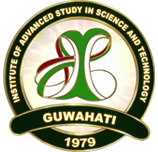In India the use of hazardous microorganisms, genetically engineered (GE) organisms and cells, and products thereof for research, manufacture and applications are facilitated and regulated as per the Gazette Notification No. G.S.R. 1037 (E), dated 05/12/1989 and entitled “Rules for the Manufacture, Use/Import/Export and Storage of Hazardous Microorganisms, Genetically Engineered Organisms or Cells” (commonly referred as Rules, 1989) notified by the Ministry of Environment and Forests (MoEF), Govt. of India under the Environment (Protection) Act, 1986. This biosafety regulatory framework requires that every R&D centers in the institutions/universities/industries/any other organizations that intend to carry out or are engaged in research and development activities involving genetic manipulation of genetic materials, microorganisms, plants or animals, and handling, utilization and shipment [exchange (inter-state and inter-institutional supply/receipt within India), import and export] of regulated biological materials [GE organisms (genetically modified organisms (GMOs)/living modified organisms (LMOs)) and cells and products thereof, recombinant DNA (rDNA) materials, non-GE hazardous microorganisms] should mandatorily constitute an Institutional Biosafety Committee (IBSC) with the approval of the Department of Biotechnology (DBT), Govt. of India for implementation of rules, regulations and guidelines to monitor the biosafety aspects of the research projects.
In accordance with the said notification, DBT had consolidated and updated earlier biosafety guidelines, namely “Recombinant DNA Safety Guidelines, 1990”, “Revised Guidelines for Safety in Biotechnology, 1994” and “Revised Guidelines for Research in Transgenic Plants, 1998” and evolved with “Regulations and Guidelines for Recombinant DNA Research and Biocontainment, 2017” (OM No. BT/BS/17/635/2015-PID, dated 01/04/2018) for regulating recombinant DNA research through IBSCs and for achieving personnel and environmental safety in the use of GE organisms and non-GE hazardous microorganisms in research, manufacture and applications.
Since IASST is actively engaged in research and development that involve manipulation, use, handling, modification, storage and shipment of recombinant DNA (rDNA) materials, potentially hazardous and genetically modified microorganisms and various human cell lines, and products thereof, an IBSC is constituted at IASST, Guwahati in conformity with the said DBT guidelines.
Details about the constitution, composition, role and functions of IBSC, along with the information for compliance requirements, processes to be followed while dealing with hazardous microorganisms, GE organisms or cells and product thereof in line with Rules 1989 are available in the “Guidelines of the Institutional Biosafety Committee (IBSC), IASST, Guwahati” and “Guidelines and Handbook for Institutional Biosafety Committee (IBSCs), 2nd Revised Edition, 2011”.
Constitution of IBSC, IASST
The IBSC of IASST is constituted and registered with the approval of the DBT, Govt. of India for a period of three (03) years (2019 – 2022) vide OM no. BT/BS/17/785/2018-PID, dated 13/03/2019 and IASST/29/1/2019-20/208-2016, dated 29/03/2019.
Composition of IBSC, IASST (2019 – 2022)
| Prof. Ashis K. Mukherjee Director, Institute of Advanced Study in Science and Technology (IASST), Guwahati. | Chairman |
|---|---|
| Prof. M. C. Kalita, Department of Biotechnology, Gauhati University, Guwahati | DBT Nominee |
| Dr. Probodh Borah, Department of Animal Biotechnology, College of Veterinary Science, Assam Agricultural University, Guwahati. | Outside Expert |
| Dr. Pranita Saikia, Chief Consultant, Pathology & Microbiology, GNRC Hospital, Dispur | Biosafety Officer |
| Dr. M. R. Khan, Associate Professor, Institute of Advanced Study in Science and Technology (IASST), Guwahati | Internal Member |
| Dr. Rajlakshmi Devi, Associate Professor, Institute of Advanced Study in Science and Technology (IASST), Guwahati. | Internal Member |
| Dr. Jagat Borah, Associate Professor, Institute of Advanced Study in Science and Technology (IASST), Guwahati. | Internal Member |
| Dr. Debajit Thakur, Associate Professor, Institute of Advanced Study in Science and Technology (IASST), Guwahati. | Member Secretary |
Purpose of IBSC, IASST
The purpose of IBSC, IASST is to implement the rules, regulations and guidelines to monitor the biosafety aspects of research, large-scale experiments/production/field release, exchange (inter-state and inter-institutional supply/receipt within India), import and export activities carried out in IASST (and other institutes involved in collaborative research with IASST) that involve manipulation of genetic materials, microorganisms, plants or animals, handing, utilization and shipment of hazardous microorganisms, GMOs/LMOs and cells and products thereof, and to ensure that all activities involving these regulated biological materials are within the purview of “Rules, 1989” and guidelines issued by the DBT from time to time.
Scope of IBSC, IASST
It is mandatory for every researchers/principal investigators (faculty, scientists, students) in IASST (and other institutes involved in collaborative research with IASST) who are engaged in or intend to carry out research activities (including PhD, dissertation project, external funded project, and in-house core project) and large-scale experiments/production/field release involving manipulation, handling, utilization and shipment [exchange (inter-state and inter-institutional supply/receipt within India), import and export] of the regulated biological materials (GMOs/LMOs and cells and products thereof, rDNA materials, non-GE hazardous microorganisms) to inform and get prior approval/clearance from IBSC, IASST or through the IBSC from the Review Committee on Genetic Manipulation (RCGM), DBT, New Delhi, Genetic Engineering Appraisal Committee (GEAC), DBT, New Delhi or other statutory authorities.
Submission of proposal application to IBSC, IASST for biosafety clearance
Before commencing any of the above-mentioned activities, the concern researchers/principal investigators must submit their proposal applications in the prescribed format(s) along with the requisite details and documents to the IBSC for appraisal. IBSC, IASST considers, examines, reviews and records the application during its appraisal meetings. The applicant may be asked to present his/her proposal before the committee and a decision shall be communicated to the applicant. Depending upon the information provided by the applicant and the nature of the work and category of the regulated materials for which the permission is sought, the IBSC, IASST may grant approval and give permission to start the research activity, may ask for resubmission or may forward the application to the RCGM, GEAC or other statutory authorities for final approval/clearance.
For details about the IBSC, IASST, and the application process for proposal submission to IBSC, IASST for getting biosafety clearance, please go through the Guidelines of the Institutional Biosafety Committee (IBSC), IASST, Guwahati, and the SOPs of the Institutional Biosafety Committee (IBSC), IASST, Guwahati.
For further details and queries, please contact:







